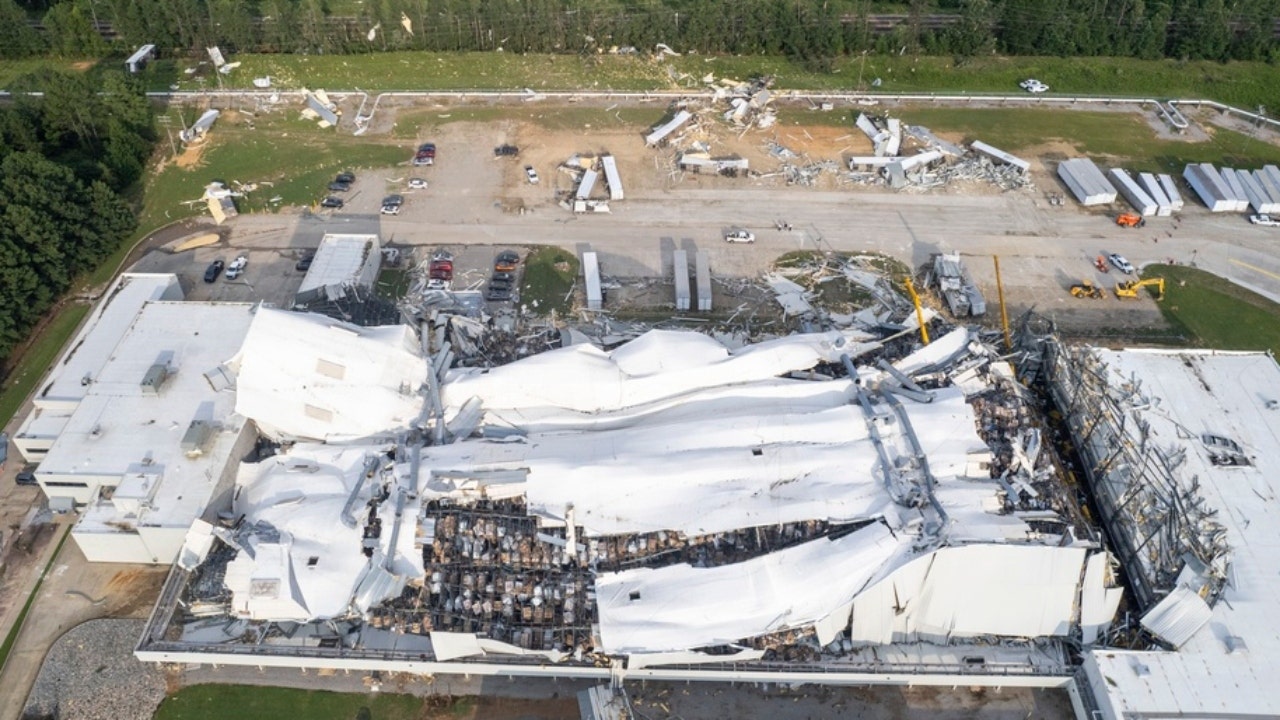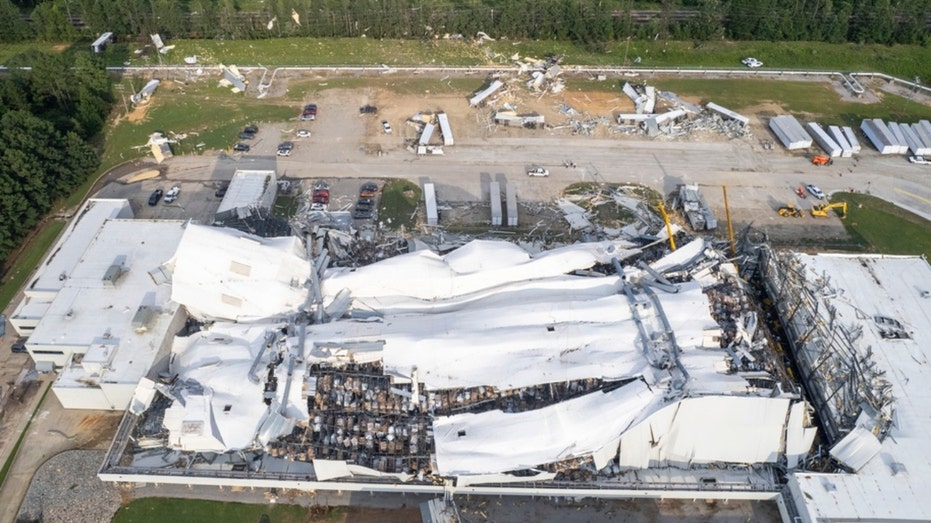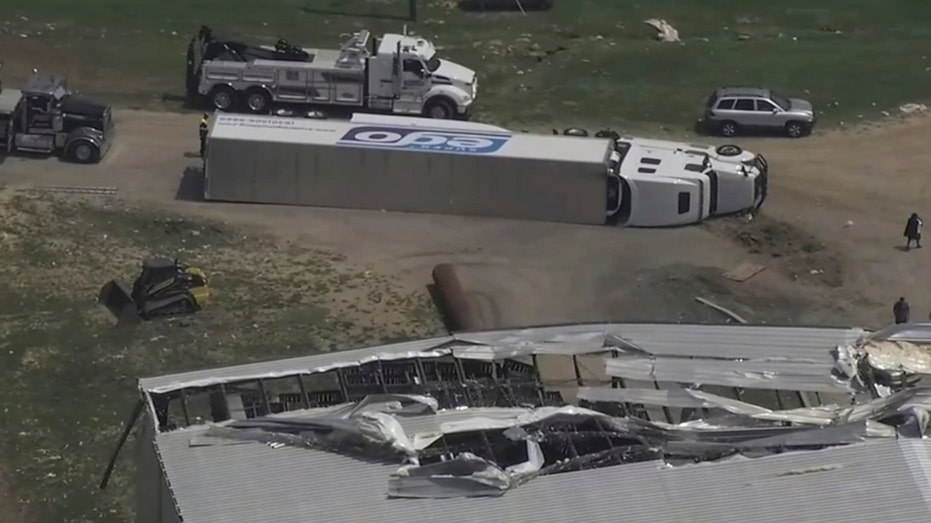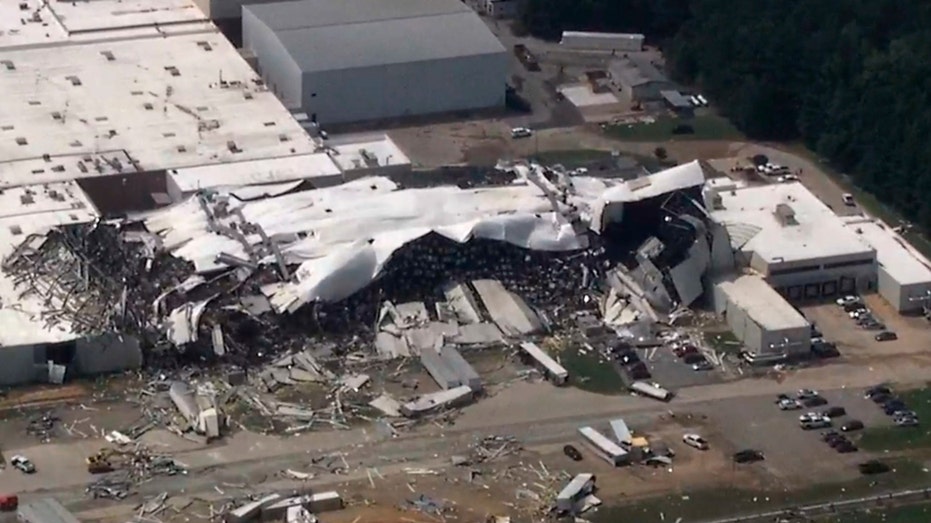Finance
Tornado damage to North Carolina Pfizer plant unlikely to cause significant drug supply impacts, FDA says

The commissioner of the U.S. Food and Drug Administration said Friday that the agency does not expect any immediate significant impacts on supply following damage from a tornado to a large Pfizer facility in North Carolina on Wednesday.
Dr. Robert Califf said in a statement he shared to social media that it is working with the drugmaker to assess the impact of the twister at the Rocky Mount plant, with a more extensive review of products that could be affected and the current availability of those products.
The assessment will also take into account what is in Pfizer’s other warehouses and what is stocked by wholesalers and distributors, if those companies are willing to share that information with the FDA.
“Importantly, we do not expect there to be any immediate significant impacts on supply given the products are currently at hospitals and in the distribution system, but this is a dynamic situation and FDA staff are in frequent communication with Pfizer and other manufacturers,” Califf said. “The FDA will work closely with partners in government, industry and the broader health care system to minimize impact on patient care.”
TORNADO DAMAGE TO NORTH CAROLINA PFIZER PLANT WILL CREATE LONG-TERM SHORTAGES OF CERTAIN DRUGS, EXPERTS FEAR
The FDA has identified fewer than 10 drugs for which the plant is the sole source for the U.S. market but said a number of those were specific formulations for which there should be substitutes, or many weeks’ worth of stock should be at other Pfizer warehouses.
“For those products produced at this facility that are already in, or may be at risk of shortage, the FDA has initiated mitigation steps, such as looking for additional sources and asking other manufacturers to prepare to ramp up production, if needed,” said Califf, noting that Pfizer had put the inventor of many products on strict allocation to ensure equitable distribution and availability and avoid hoarding.

He cautioned that allocation measures could lead to localized supply disruptions, depending on contractual relationships for supplies.
“More broadly, this incident underscores that a robust, resilient and safe drug supply chain is essential for public health and national security. Redundancy of manufacturing locations, which can include domestic locations, and of suppliers is important to mitigate risks to supply that can occur from natural disasters, geopolitical conflicts or other less predictable events,” the commissioner stated.
Pfizer has a third of the total sterile injectable drug market for hospitals in the U.S., and Califf said that 8% of U.S. consumption is supplied by the site.

Experts feared that the destruction from the twister would be a major blow to an already strained sytem.
The EF3 tornado touched down near Rocky Mount, ripping the roof the Pfizer facility, although Pfizer said that most of the damage affected its storage facility rather than its medicine-production areas.

The COVID-19 vaccine maker said that a warehouse for raw materials, packaging supplies and finished medicines awaiting release had endured most of the hit and that all 3,200 local employees are safe and accounted for.
The plant produces anesthesia and many other drugs needed for surgeries but does not make or store the coronavirus vaccine or the Comirnaty and Paxlovid treatments.
Pfizer Chairman and CEO Dr. Albert Bourla said that employees are rushing products to nearby sites for storage and identifying sources to rapidly replace raw materials lost in the event. The drug company says it is also exploring alternative manufacturing locations across its U.S. network to fill gaps in production while the North Carolina site remains closed for repairs.
The Associated Press contributed to this report.
Read the full article here


















